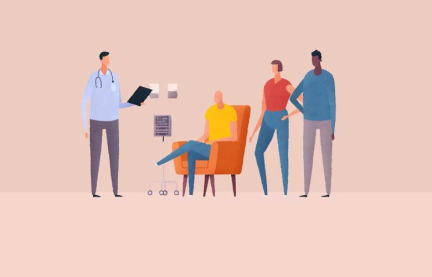Charlotte’s grief journey began when she received a formal notification that her soldier husband had been killed in action. She was devastated and it took a very long time before she got her life back on an even keel. It had been a painful, frightening and exhausting process, but gradually – very gradually – the pain had eased.
Emily’s experience of grief had been very different. The formal notification she received was to inform her that her husband was missing in action, presumed killed. She experienced a maelstrom of emotions – the grief, sadness and shock associated with grief, but also hope and a determination not to give up or to accept that he had gone. As the years went by, Emily became less confident that he would ever return, but she found it too painful to admit to herself that this was now not going to happen.

Emily was experiencing what Professor Pauline Boss, in her esteemed textbook, had called ‘ambiguous loss’. This refers to losses that are not clear cut, losses where the ‘normal’ grieving process is hampered in one or more ways. Such circumstances arise where there is something complicating the situation, the consequence of which is resolution of the loss being blocked.
The term ‘ambiguous’ is used to reflect the lack of a straightforward way of making sense of the situation, with no clear path forward to pursue. People experiencing ambiguous loss will often speak of a sense of being trapped, stuck between a felt need to grieve and a reluctance to give up hope that the situation can be resolved, an ongoing longing for a return to the pre-loss period. This can stop people moving on with their lives.

A further example of an ambiguous loss situation would be a scenario in which a couple go through a divorce but see each other on, say, a fortnightly basis when the non-resident partner comes to pick up the children for the agreed contact time together. Wanting to ‘move on’ and put the grief associated with the relationship breakdown behind them can be frustrated by the regular reminders. It is as if the wound starts to heal, but then is opened again. It leaves us wondering to what extent the acrimony that can arise in such circumstances is caused, in part at least, by the pain and tension involved in wrestling with complex feelings brought about by ambiguous loss.
There can also be situations where someone is in a deep coma and is unlikely to revive, but there remains hope that this will happen one day. Again, this is a situation where people feel pulled in two different directions at the same time, an experience that can be very distressing, if not actually traumatic.
Yet another example would be circumstances where someone is physically present but, as it were, psychologically absent due to being at an advanced stage of dementia or a neurological disorder.
A common theme in ambiguous loss situations is a lack of clarity which leads to a disorientating sense of not knowing where you stand.This can be as a result of the conflict between a strong and profound sense of loss and an equally strong and profound sense of hope.
But it isn’t necessarily a settled or constant conflict, as the relative strengths of the vying emotions will vary from day to day or even hour to hour. This inconstancy and unpredictability can serve to add to the distress and confusion.
By its very nature, grief is a very difficult experience to go through, but the grief associated with ambiguous loss can clearly be a much heavier – and more complicated – burden to bear in many circumstances. As a result of this, its impact on a person’s mental health and overall quality of life can be significant at times. It is for this reason that we need to take account of ambiguous loss and its implications.
The more awareness we have of ambiguous loss and its potential consequences, the stronger a position we will be in to understand what is happening to us if ever we are experiencing such a loss or if we are called upon to support others – personally or professionally – in wrestling with the demands of ambiguous loss.





Rate and Review
Rate this article
Review this article
Log into OpenLearn to leave reviews and join in the conversation.
Article reviews